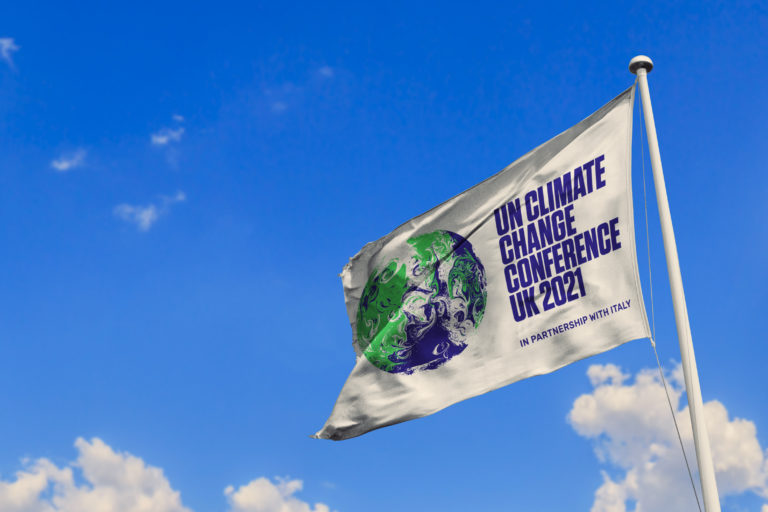Earlier this week Emily Pontecorvo, a reporter at one of the leading climate magazine’s Grist, tweeted:
do you have an earth day brand announcement?
does it include:
– near-term scope 1,2,3 emissions targets?
– transparent info about which emissions you are cutting and how?
– and which ones you aren't/can't and what you plan to do about that?No? don't bother emailing me
— Emily Pontecorvo (@emilypont) April 13, 2021
Earth Day in 2021 looks very different to previous years. A third of the UK’s largest companies have now committed to net zero – over 100 have recently signed Amazon’s Climate Pledge. In recent days, there has been a swathe of legislation, regulation, and commitments both across the UK and the rest of the world. For organisations looking to announce their latest environmental undertaking, the competition is tough.
This has introduced new challenges for businesses. How do we stand out from the crowd? How do we know we are doing enough for the climate? How do we communicate the good we are doing whilst avoiding criticism in the areas we are behind? And how can we exert influence over government policy?
These are usually accompanied with the question “how can my organisation engage with COP26”? Engagement with COP, the annual UN climate change conference which will be hosted in Glasgow this year, has become one of the most competitive ambitions for organisations who want to demonstrate their green credentials on the global stage. This is especially true given the UK has hosting responsibility this year, and that it is one of the most significant since Paris in 2015; an opportunity to review progress and ratchet up ambition.
The challenge is, the deadline to have a major presence by either exhibiting, hosting an event, or attending COP26 was early March. A successful application would have entailed at least one, if not more, years of strategy behind it. Many applications won’t be successful and whilst there are still some opportunities to become involved with COP26 fringe events, engagement looks somewhat limited – especially with some uncertainty remaining over possible Covid-19 restrictions.
Does that mean the opportunity to engage with COP26 is over? Quite the opposite. But as organisations look to alternative channels to participate in the agenda, cutting through the noise will take great creativity, strong leadership, and addressing some hard organisational questions. There are three things organisations can be doing:
1. Identify your strengths and weaknesses
As Patrick Cousens, Head of Energy and Sustainability at PLMR outlines on our recent podcast – sustainability should not be a part of a communications agenda. It should be on the businesses’ agenda and be something you communicate.
That means thinking holistically about corporate strategy and business. Asking – where are your strengths when it comes to sustainability? What actions can be taken now/immediately? It also means being honest about your organisation’s weakness.
As Emily Pontecorvo notes, that includes those you “aren’t/can’t [address] and what you plan to do about that”. Not only does this sort of transparency drive real change in organisations, it is also key to mitigating accusations of “greenwashing” – you should know your weaknesses more than anyone else and have a plan to account for them long term.
2. Play the long game
Organisations who are not involved in COP26 still have a significant opportunity to engage, especially in the next year. The UK Government is accelerating its green agenda ahead of COP26. As a result, there are multiple opportunities for engaging with and shaping future policy – with multiple consultations and funding initiatives planned. Westminster and local authorities are open to hearing from organisations – provided you get the communication right.
Now is also the time to be thinking about what happens after COP26. Climate change is not going away. COP26 is merely a staging post in a marathon of transformation. Initiatives and legislation will only increase as we head towards 2030. Planning and undertaking activity post-COP26 provides the opportunity to leverage the consensus following the conference to accelerate your agenda.
3. Consider your wider reputation
Those who do have a presence at COP26, largely got there because of their reputations. Not just their reputations on sustainability – their wider reputation. Just because organisations have strong credentials on sustainability or ESG, does not mean they are guaranteed influence. Organisations also need to be good at communicating what they do, how they contribute to society and the economy, and how they interact with their customers and treat their employees. These are all things organisations need to consider if they are looking to use COP26 to their advantage.
Conclusion
The next few months will be some of the most competitive for those looking to exert influence over, or demonstrate credentials on, the green agenda. But if organisations have clear goals, are transparent about their environmental progress, and play the long game, it also presents one of the best opportunities to enhance their reputation long term.





